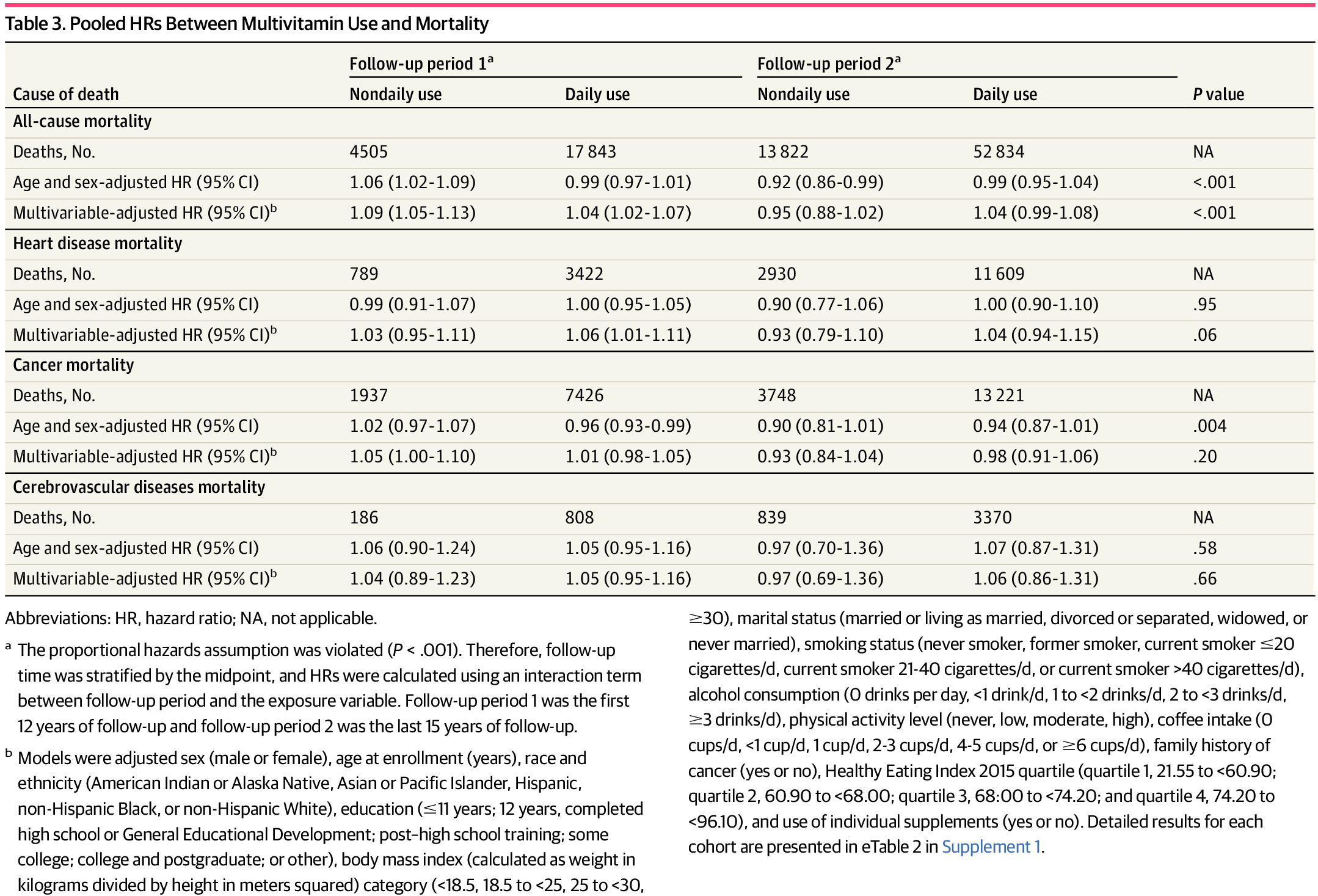We all might have come across your regular influencer promoting or talking about certain or various supplements that they put in their bodies all day every day. Recently, what caught my attention was Mr. Bryan Johnson, who has dedicated his life to reversing ageing as much as possible with a lot of technology and money. But for all of us who cannot be tech millionaires, the allure of daily multivitamins is hard to resist, especially when marketed as an easy solution to better health and longevity. Yet, a groundbreaking study involving nearly 400,000 healthy adults reveals that daily multivitamin supplements do not extend lifespan and may even slightly increase the risk of early death.
This article delves into the study's findings, the potential risks of multivitamins, and the implications for consumers. We also examine the influence of the multivitamin industry and the role of social media influencers in shaping public perceptions.
The Study: Multivitamins and Longevity
Researchers from the National Cancer Institute in Maryland conducted a comprehensive analysis of health records from 390,124 generally healthy adults over two decades. They aimed to determine whether daily multivitamins reduced the risk of death from chronic diseases such as heart disease and cancer.
• Contrary to popular belief, the study found no evidence that daily multivitamins lower mortality rates. In fact, users of daily multivitamins exhibited a 4% higher risk of death during the study period compared to non-users.

Methodology and Findings
The researchers utilised data from three major U.S. health studies launched in the 1990s. Participants' multivitamin usage was tracked, and health outcomes were analysed. The study's observational nature means it did not establish a direct causal relationship between multivitamin use and increased mortality but highlighted a significant association.
Potential Harms of Multivitamins
JAMA Network Open, a monthly open access medical journal produced by the American Medical Association that covers all facets of the biomedical sciences, published the study's findings and raised concerns regarding the possible negative effects of multivitamins.
For example,
- While natural sources of beta-carotene are protective against cancer, beta-carotene supplements can increase the risk of lung cancer and heart disease.
- Similarly, iron in multivitamins can lead to iron overload, raising the risk of cardiovascular disease, diabetes, and dementia.

The Multivitamin and Supplement Industry: Big Business with Big Influence
Tens of billions of dollars are spent each year on dietary supplements, such as multivitamins, in the global market. Accoring to a report by The Grand View Research , the market for vitamin supplements was projected to be worth USD 48.51 billion in 2022, and between 2023 and 2030, it is projected to expand at a compound annual growth rate (CAGR) of 7.3%.
Almost half of adult consumers in the UK alone routinely use multivitamins or dietary supplements, fueling a home market that exceeds half a billion pounds annually.In 2024, the vitamin & mineral market in the United Kingdom brought in an incredible US$0.78 billion. In the future, the market is expected to rise steadily at a rate of 6.53% annually (CAGR 2024–2029). (according to Statista).
_1719562517.png)
Marketing tactics and consumer vulnerability
Multivitamin companies often employ aggressive marketing tactics, preying on consumers' desires for easy health solutions. Advertisements frequently feature health claims that are not backed by solid scientific evidence, exploiting the public's trust and lack of medical knowledge. Moreover, many people are influenced by health influencers on social media who promote supplements without any medical accreditation, further perpetuating misinformation.
Health Influencers and Misinformation
The rise of social media has given birth to numerous 'wellness gurus, who often lack formal medical training. These individuals wield significant influence over public perceptions of health and wellness, frequently endorsing multivitamins and other supplements. Their recommendations, while appealing, can be misleading and potentially harmful, especially when they contradict established medical advice.

Conclusion
The major study conducted by the National Cancer Institute highlights the lack of evidence supporting the health benefits of daily multivitamins. Instead of relying on supplements, individuals are encouraged to focus on a nutrient-rich diet to maintain optimal health. The multivitamin industry’s influence and the role of unqualified health influencers underscore the need for consumers to critically evaluate health information and seek advice from qualified healthcare professionals.
Inputs from multiple agencies
Media sources: multiple
Ⓒ Copyright 2024. All Rights Reserved Powered by Vygr Media.



















